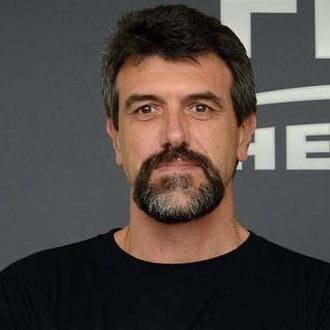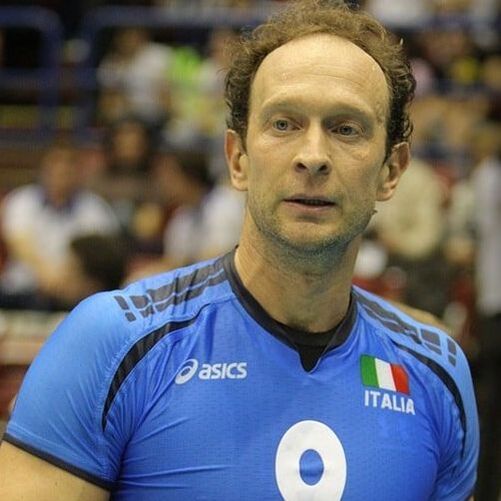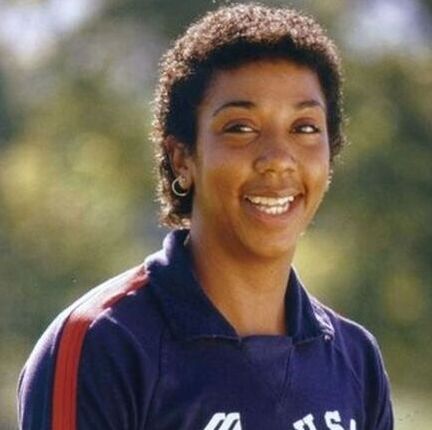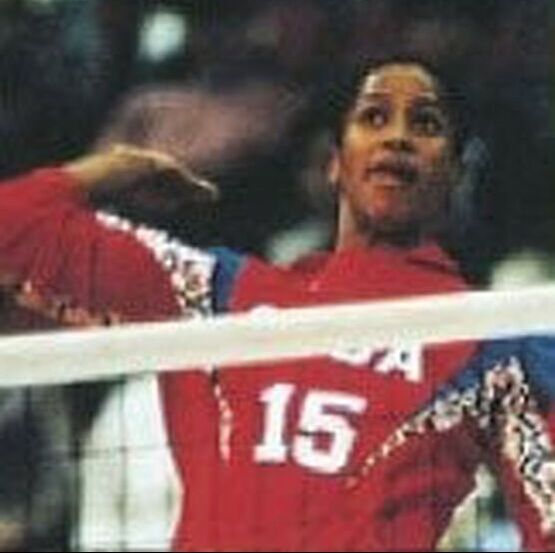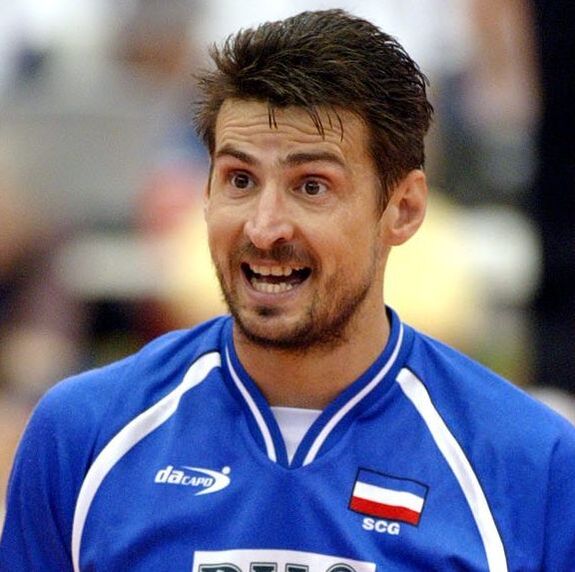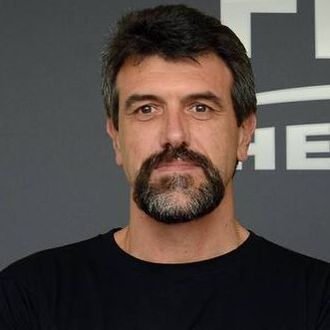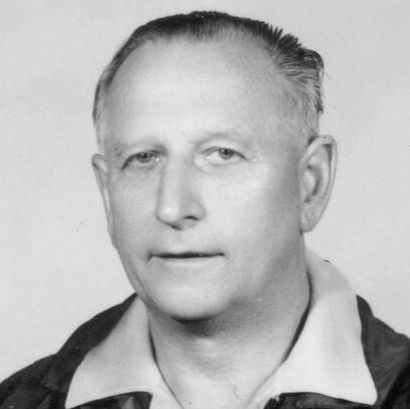BIOGRAPHY
Hugo Conte was a symbol of pride for Argentina on volleyball courts across the world for over 16 years, a period in which Argentina was in contention for podium finishes in almost every major international competition.
Hugo was widely respected as one of the most intelligent and best all-around players in the world on a team that mirrored his special skills.
At the age of 21, Hugo made his Olympics debut at the 1984 Los Angeles Games as Argentina had hopes of a medal finish after earning the bronze medal at the 1982 FIVB World Championship hosted in Buenos Aires. After two losses to the United States and Brazil to start Olympic pool play, Argentina defeated Tunisia before a tough, five-set loss to Korea to end Pool A pushed the team into the 5-8 classification round. After a four-set win over Japan, Argentina ended the 1984 Olympics in sixth place with a second loss to Korea.
A year after the 1984 Olympics, Argentina earned a fifth-place finish at the 1985 FIVB World Cup in its first-ever appearance in that tournament. At the 1986 FIVB World Championship, Argentina placed seventh.
Hugo and Argentina returned to the Olympics in 1988 with the Games of Seoul, and this time a podium spot was a real possibility with the growth and added international experience of the team. Argentina opened pool play with wins over Tunisia and Japan before a heart-breaking five-set loss to the United States after being up 2-0 to the eventual gold medalists. Argentina split their final two pool matches, defeating Netherlands and losing to France. Despite the final loss, Argentina still qualified for the semifinal round where it lost to the powerhouse Soviet Union team in three sets. Argentina rallied from the loss to battle past Brazil in a five-set victory to capture the bronze medal.
Hugo played professionally in three different countries – Argentina, France and Italy – but predominantly in the Italian league. He competed for Argentina’s Ferro Carril Oeste in three different tenures from 1978 to 1982, 1986 to 1987 and 1998 to 1999. After an initial venture into club volleyball in his home country, Hugo played one season with France’s AS Cannes from 1982 to 1983. He made a name for himself in Italy with seasons with Pallavolo Parma from 1983 to 1984, Victor Village Ugento from 1984 to 1986, Acqua Pozzillo Catane from 1987 to 1990, Carimonte Modena from 1990 to 1993, Alpitour Diesel Cuneo from 1993 to 1994, Tally Milan from 1994 to 1995, Playa Catania from 1995 to 1998 and returning to Pallavolo Parma briefly for the 2000-2001 season. Overall, his club playing career spanned 23 years, starting with Ferro Carril Oeste in his native country and ending in 2001 with Parma.
Hugo’s Olympic debut in 1984 was not the only special occasion that year as he helped Parma of the Italian Serie A win the prestigious European Champions League the same year.
After a 12-year absence from the Olympics, Hugo participated in his third Olympic Games in 2000 after missing out on Argentina’s participation in the 1996 Games. Argentina qualified for the 2000 Olympic Games through the World Olympic qualification tournaments with a 37-year-old Hugo as the elder statesman. Argentina started the 2000 Olympic Games strong with victories over United States and Korea, before losing to highly regarded Italy, Serbia and Montenegro and Russia in three straight matches. Argentina regrouped to defeat South American rival Brazil in the quarterfinals. However, Russia ended Argentina’s run at gold with a four-set semifinal victory, and Italy denied Argentina a medal with a victory in the bronze-medal match.
Away from the indoor courts, Hugo played one season of beach volleyball on the FIVB World Tour and its Challenger and Satellite series in 1997. Competing with Fabio Perez, the duo placed ninth at the tour stop in Berlin for its top finish in eight tournaments.
The name Conte will likely be placed on Argentina volleyball rosters for many years to come with Hugo’s son Facundo now being a member of the Argentina Men’s National Team. At the age of 21, the same year as his father reached his first Olympic Games, Facundo was selected as Argentina’s vice-captain for the 2010 FIVB World Championship just one year after helping Argentina’s Junior National Team to a bronze-medal finish at the 2009 FIVB Men’s Junior World Championship.
Hugo was widely respected as one of the most intelligent and best all-around players in the world on a team that mirrored his special skills.
At the age of 21, Hugo made his Olympics debut at the 1984 Los Angeles Games as Argentina had hopes of a medal finish after earning the bronze medal at the 1982 FIVB World Championship hosted in Buenos Aires. After two losses to the United States and Brazil to start Olympic pool play, Argentina defeated Tunisia before a tough, five-set loss to Korea to end Pool A pushed the team into the 5-8 classification round. After a four-set win over Japan, Argentina ended the 1984 Olympics in sixth place with a second loss to Korea.
A year after the 1984 Olympics, Argentina earned a fifth-place finish at the 1985 FIVB World Cup in its first-ever appearance in that tournament. At the 1986 FIVB World Championship, Argentina placed seventh.
Hugo and Argentina returned to the Olympics in 1988 with the Games of Seoul, and this time a podium spot was a real possibility with the growth and added international experience of the team. Argentina opened pool play with wins over Tunisia and Japan before a heart-breaking five-set loss to the United States after being up 2-0 to the eventual gold medalists. Argentina split their final two pool matches, defeating Netherlands and losing to France. Despite the final loss, Argentina still qualified for the semifinal round where it lost to the powerhouse Soviet Union team in three sets. Argentina rallied from the loss to battle past Brazil in a five-set victory to capture the bronze medal.
Hugo played professionally in three different countries – Argentina, France and Italy – but predominantly in the Italian league. He competed for Argentina’s Ferro Carril Oeste in three different tenures from 1978 to 1982, 1986 to 1987 and 1998 to 1999. After an initial venture into club volleyball in his home country, Hugo played one season with France’s AS Cannes from 1982 to 1983. He made a name for himself in Italy with seasons with Pallavolo Parma from 1983 to 1984, Victor Village Ugento from 1984 to 1986, Acqua Pozzillo Catane from 1987 to 1990, Carimonte Modena from 1990 to 1993, Alpitour Diesel Cuneo from 1993 to 1994, Tally Milan from 1994 to 1995, Playa Catania from 1995 to 1998 and returning to Pallavolo Parma briefly for the 2000-2001 season. Overall, his club playing career spanned 23 years, starting with Ferro Carril Oeste in his native country and ending in 2001 with Parma.
Hugo’s Olympic debut in 1984 was not the only special occasion that year as he helped Parma of the Italian Serie A win the prestigious European Champions League the same year.
After a 12-year absence from the Olympics, Hugo participated in his third Olympic Games in 2000 after missing out on Argentina’s participation in the 1996 Games. Argentina qualified for the 2000 Olympic Games through the World Olympic qualification tournaments with a 37-year-old Hugo as the elder statesman. Argentina started the 2000 Olympic Games strong with victories over United States and Korea, before losing to highly regarded Italy, Serbia and Montenegro and Russia in three straight matches. Argentina regrouped to defeat South American rival Brazil in the quarterfinals. However, Russia ended Argentina’s run at gold with a four-set semifinal victory, and Italy denied Argentina a medal with a victory in the bronze-medal match.
Away from the indoor courts, Hugo played one season of beach volleyball on the FIVB World Tour and its Challenger and Satellite series in 1997. Competing with Fabio Perez, the duo placed ninth at the tour stop in Berlin for its top finish in eight tournaments.
The name Conte will likely be placed on Argentina volleyball rosters for many years to come with Hugo’s son Facundo now being a member of the Argentina Men’s National Team. At the age of 21, the same year as his father reached his first Olympic Games, Facundo was selected as Argentina’s vice-captain for the 2010 FIVB World Championship just one year after helping Argentina’s Junior National Team to a bronze-medal finish at the 2009 FIVB Men’s Junior World Championship.
CLASS OF 2011
|
|
|
|

